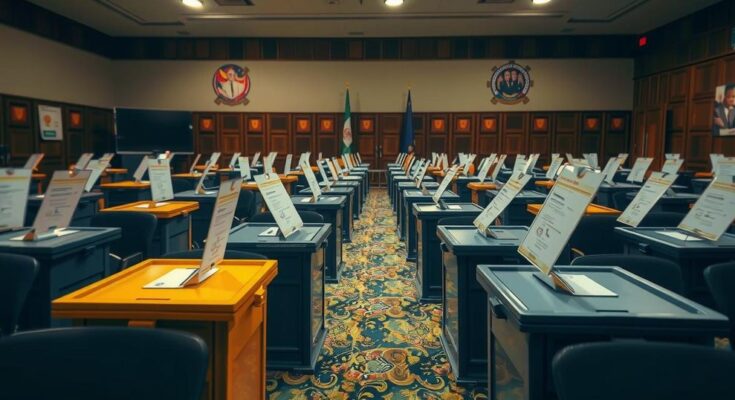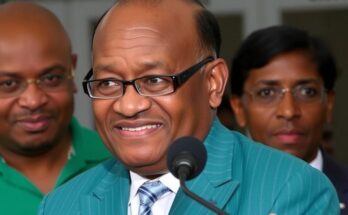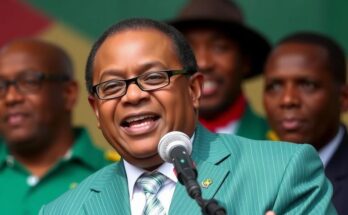Guinea Bissau’s President Umaro Sissoco Embalo has indefinitely postponed the legislative elections originally set for November 24. This decision comes amid ongoing political uncertainty following parliamentary dissolution due to violent clashes. Funding and logistical issues further complicate the electoral process in a country already grappling with poverty and governance challenges.
On Monday, President Umaro Sissoco Embalo of Guinea Bissau announced the indefinite postponement of the legislative elections that were initially scheduled for November 24. This decision exacerbates the ongoing political instability within the small West African nation, which has grappled with a sense of governance limbo since Embalo dissolved parliament in December 2023, following violent clashes that he labeled an attempted coup. The anticipation surrounding the elections had waned significantly when on November 1, the Minister for Territorial Administration, Aristides Ocante da Silva, expressed concerns about the elections’ feasibility, citing logistical challenges and insufficient funding. Following this, President Embalo indicated that he would formally announce the postponement, which materialized this week when he annulled the July 2024 decree that had established the election date. However, he has yet to propose a new timeline for the elections, leaving further uncertainty in the political landscape. The situation is exacerbated by the uncertainty surrounding the upcoming presidential elections, with the African Party for the Independence of Guinea and Cape Verde (PAIGC) holding a majority in parliament since the June 2023 elections. This has led to increased political friction and a complicated cohabitation dynamic between Embalo and the PAIGC leadership. As one of the world’s poorest nations, Guinea Bissau continues to battle economic challenges that hinder the funding of electoral processes, further complicating its push for stable governance amid a history marred by coups. Despite progress since gaining independence from Portugal, Guinea Bissau remains ensnared in a cycle of political turmoil. The president’s election in December 2019 and the ongoing disputes regarding the upcoming presidential election underscore the ongoing struggle for a return to a fully functional constitutional order.
The political climate in Guinea Bissau has long been characterized by instability, particularly evident in its history of coups and governance challenges since gaining independence from Portugal. Following the dissolution of the parliament, there was a moment of hope for renewed political order with scheduled elections. However, the recurring issues of funding and logistical barriers have contributed to a lack of credible electoral processes. Furthermore, the political dynamics characterized by cohabitation between President Embalo and the PAIGC, a party with a parliamentary majority, have led to escalating tensions, which complicate the prospects for resolution.
In summary, the indefinite postponement of Guinea Bissau’s legislative elections signifies the persistent political instability facing the nation. President Embalo’s decision, influenced by logistical and financial constraints, reflects broader issues in governance that have plagued the country. The ongoing contention surrounding both legislative and presidential elections highlights the urgent need for resolution in order to establish a more stable political environment.
Original Source: punchng.com




